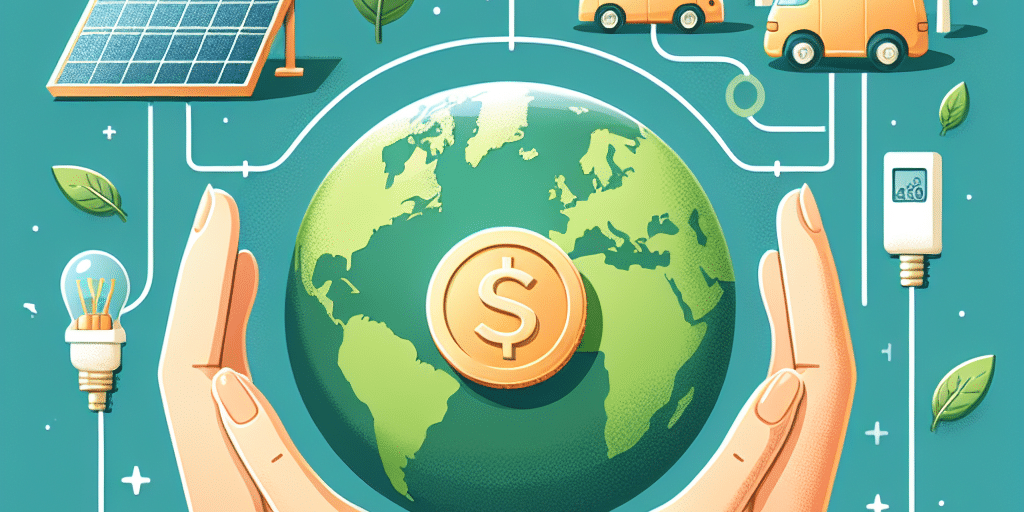Sustainable Development: Investing in Earth’s Future
In an era where the consequences of unchecked growth and industrialization are becoming increasingly evident, the concept of sustainable development emerges as both a necessity and an opportunity. Sustainable development is about achieving a balance between economic growth, environmental health, and social well-being. It’s a holistic approach that requires investments in our planet’s future to ensure prosperity for generations to come.
Understanding Sustainable Development
Sustainable development is often defined as development that meets the needs of the present without compromising the ability of future generations to meet their own needs. It is a forward-thinking model that aims to harmonize economic progress with the environment and social equity. The United Nations’ 2030 Agenda for Sustainable Development outlines 17 Sustainable Development Goals (SDGs) that serve as a blueprint for global efforts towards these aims. These goals emphasize areas such as clean energy, responsible consumption, climate action, and quality education, highlighting the interconnected nature of human society with the Earth’s systems.
Investing in Green Technologies
One of the most critical investments in the path of sustainable development is the support and implementation of green technologies. These innovations reduce carbon footprints, enhance energy efficiency, and promote renewable resources. Investments in solar, wind, and hydroelectric power have already demonstrated the potential to decrease reliance on fossil fuels, reducing greenhouse gas emissions and curbing the impacts of climate change.
Furthermore, advancements in electric vehicles, sustainable agriculture, and smart cities are contributing to the reduction of environmental stress. For instance, precision farming techniques allow for the judicious use of water and fertilizers, thereby conserving essential natural resources. In parallel, electric vehicles and public transport electrification cut urban air pollution and reduce oil dependency.
Economic Benefits of Sustainability
Contrary to some misconceptions, sustainable development can fuel economic growth rather than hinder it. By prioritizing renewable energies and eco-friendly practices, new markets and job opportunities are created. The renewable energy sector, for instance, employs millions worldwide, with the potential to generate significantly more jobs as investments continue to grow.
Moreover, sustainable practices within industries can lead to cost savings through increased efficiency and waste reduction. Businesses that adapt to sustainability trends attract environmentally conscious consumers, resulting in improved brand loyalty and financial performance.
Social Impacts and Equity
A truly sustainable development model considers social dimensions equally vital as environmental and economic aspects. This involves investing in education, healthcare, and infrastructure to reduce inequality and ensure equitable access to resources. Gender equality, for instance, is a critical driver of sustainable development, with education and empowerment of women leading to healthier families and stronger economies.
Additionally, sustainable development focuses on fostering communities resilient to climate impacts. For low-income and vulnerable populations, this means ensuring access to clean water, sanitation, and nutritious food, as well as building infrastructure that can withstand environmental shocks.
Challenges and the Way Forward
While the path towards sustainable development is promising, it also presents significant challenges. Political will, financial resources, and technological advancements are pivotal in driving the transition. Governments, businesses, and civil societies must collaborate to overcome entrenched systems and barriers.
Global cooperation is crucial to address these challenges, as the effects of environmental degradation and social inequality do not adhere to geographic borders. Multinational agreements, such as the Paris Climate Accord, showcase the importance of unified efforts in achieving sustainability goals.
Conclusion
Sustainable development is not just a buzzword; it’s an imperative investment in Earth’s future, and by extension, humanity’s future. It requires a shift in mindset, valuing long-term collective benefits over short-term individual gains. Every stakeholder, from policymakers to individual citizens, plays a role in this transformative journey. With concerted effort, innovation, and commitment, we can pave the way towards a more sustainable, equitable, and prosperous world for future generations.







